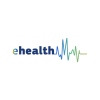The meeting was held on 23-24 April 2012; it was chaired by Astrid Krag, Health Minister of Denmark, the country holding the Presidency of the Council of the EU. John Dalli, European Commissioner for Health and Consumer Policy, and Zsuzsanna Jakab, Director of the World Health Organization (WHO) Regional Office for Europe also attended.
The two-day meeting was focused on increasing the ministers' awareness of the importance of enhancing healthcare innovation. Healthcare innovation is a key factor if the EU Member States are to cope with the financial crisis and demographic challenges while safeguarding high quality healthcare systems.
The Ministers also agreed to use the Health Security Committee (HSC) as a platform for crisis management in the field of medical devices. The Health Security Committee is the body through which the European Commission coordinates health security measures. It will from now on be used if there is a need for quick and resolute response from health ministers to critical matters.
Moreover, a debate on patient empowerment showed common understanding between the Ministers on the need to give people with chronic disease the possibility to play an active role in managing their own disease. They discussed the advantages and pitfalls of patient empowerment for the individual patient, the European healthcare systems and society in general.
"Patient empowerment has many dimensions. There is not only one way. We are faced with a new paradigm – a cultural change – that we have to work systematically on to implement national policies in the coming years. Therefore I am very glad to see common understanding among my colleagues that patient empowerment is not a question of leaving patients alone. Nor is it an exercise in cutting expenditure. It is about getting the best quality of treatments for the resources we have."
Following this discussion, patient empowerment is expected to be a key component in the ongoing European reflection process aiming to identify options to optimise the response to the challenges of chronic diseases.
Further information:

